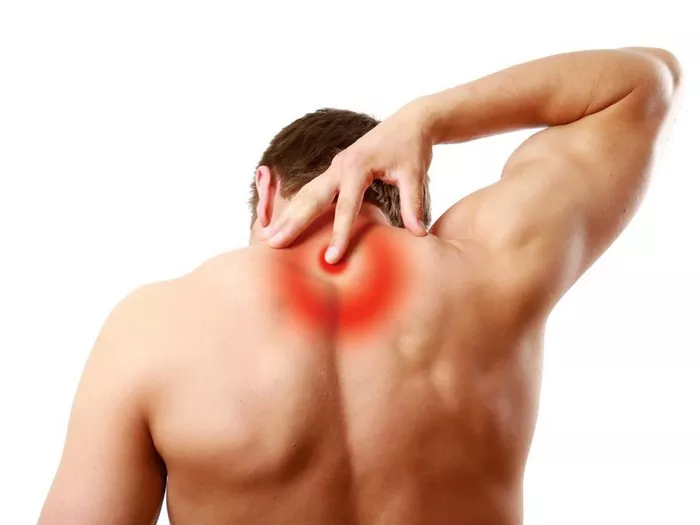Upper back pain is a common complaint that can be caused by various factors, including muscle strain, poor posture, and spinal issues. However, in some cases, upper back pain can also be a sign of underlying heart problems. Understanding the relationship between upper back pain and heart issues is crucial for timely diagnosis and appropriate medical intervention.
Understanding Upper Back Pain
Before delving into the connection between upper back pain and heart problems, it’s essential to understand the nature of upper back pain itself. The upper back, also known as the thoracic spine, is a complex region composed of vertebrae, muscles, ligaments, and nerves. Pain in this area can range from mild discomfort to severe, debilitating pain.
Common causes of upper back pain unrelated to heart issues include:
1. Muscle Strain: Overuse or sudden movements can strain the muscles in the upper back, leading to pain and stiffness.
2. Poor Posture: Prolonged sitting or standing with improper posture can put strain on the muscles and ligaments of the upper back.
3. Spinal Problems: Conditions such as herniated discs, osteoarthritis, and spinal stenosis can cause upper back pain.
4. Injury: Traumatic events such as falls or car accidents can result in upper back pain.
In many cases, rest, gentle stretching exercises, and over-the-counter pain medications can alleviate non-cardiac-related upper back pain. However, if the pain persists or is accompanied by other symptoms, it’s important to consider the possibility of underlying heart issues.
The Connection Between Upper Back Pain and Heart Problems
While most cases of upper back pain are musculoskeletal in nature, certain heart conditions can manifest with symptoms that include upper back discomfort. Understanding these connections can aid in early detection and treatment of potentially serious cardiac issues. Some heart-related conditions that may cause upper back pain include:
1. Coronary Artery Disease (CAD): CAD occurs when the arteries that supply blood to the heart become narrowed or blocked due to plaque buildup. When the heart muscle doesn’t receive enough oxygen-rich blood, it can cause chest pain (angina) that may radiate to the upper back, shoulders, arms, neck, or jaw.
2. Heart Attack: A heart attack, also known as a myocardial infarction, occurs when a coronary artery is completely blocked, cutting off blood flow to part of the heart muscle. Along with chest pain, which can radiate to the upper back, other symptoms such as shortness of breath, nausea, sweating, and lightheadedness may occur.
3. Aortic Dissection: This life-threatening condition involves a tear in the inner layer of the aorta, the main artery that carries blood from the heart to the rest of the body. Aortic dissection can cause sudden, severe upper back pain that may be described as tearing or ripping in nature.
4. Pericarditis: Inflammation of the pericardium, the sac surrounding the heart, can lead to chest pain that may radiate to the upper back. Pericarditis pain is often sharp and worsens with deep breathing or lying down.
5. Angina: This type of chest pain occurs when the heart muscle doesn’t receive enough oxygen-rich blood temporarily. Angina can cause discomfort or pressure in the chest that may spread to the upper back, neck, jaw, or arms.
Differentiating Cardiac and Non-Cardiac Upper Back Pain
Given the overlap in symptoms between cardiac and non-cardiac upper back pain, it’s essential to differentiate between the two. Some key factors that can help distinguish cardiac-related upper back pain from other causes include:
1. Location of Pain: Cardiac-related upper back pain often radiates from the chest to the upper back, neck, shoulders, arms, or jaw. Non-cardiac pain may be localized to specific muscles or areas of the spine.
2. Nature of Pain: Cardiac-related pain may be described as pressure, tightness, heaviness, or squeezing, whereas musculoskeletal pain is often sharp, stabbing, or dull.
3. Associated Symptoms: Cardiac-related upper back pain is frequently accompanied by other symptoms such as chest pain, shortness of breath, nausea, sweating, dizziness, or palpitations. Non-cardiac pain may not have these associated symptoms.
4. Triggers: Cardiac-related pain may be triggered by physical exertion, emotional stress, or eating a heavy meal. Non-cardiac pain may be triggered by specific movements or activities.
When to Seek Medical Attention
If you experience upper back pain along with any of the following symptoms, seek immediate medical attention as they could indicate a serious cardiac issue:
- Chest pain or pressure that radiates to the upper back, neck, jaw, arms, or shoulders.
- Shortness of breath or difficulty breathing.
- Nausea, vomiting, or sweating.
- Dizziness or lightheadedness.
- Irregular heartbeat or palpitations.
- Sudden, severe pain that feels like tearing or ripping in the upper back.
Prompt evaluation by a healthcare professional is crucial to determine the cause of upper back pain and initiate appropriate treatment. Diagnostic tests such as electrocardiogram (ECG), echocardiogram, stress test, cardiac catheterization, and blood tests may be performed to evaluate cardiac function and rule out heart-related issues.
Conclusion
While upper back pain is often attributed to musculoskeletal causes, it’s important to recognize that it can also be a sign of underlying heart problems. Understanding the potential connections between upper back pain and cardiac issues, along with knowing when to seek medical attention, can lead to timely diagnosis and intervention, improving outcomes for individuals at risk of heart-related conditions. If you experience upper back pain accompanied by symptoms suggestive of a heart problem, do not hesitate to seek medical help for appropriate evaluation and management.


